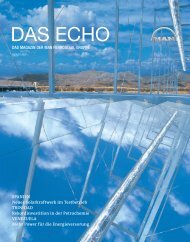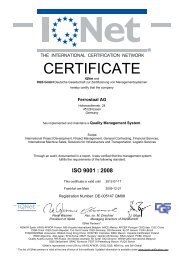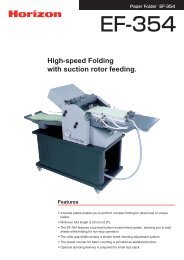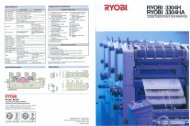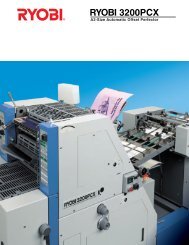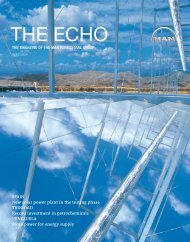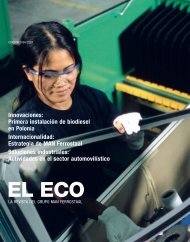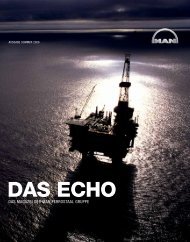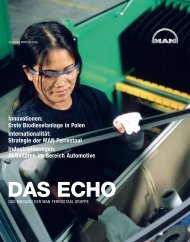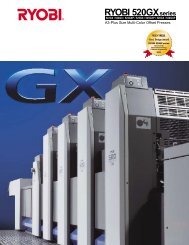THE ECHO - Ferrostaal
THE ECHO - Ferrostaal
THE ECHO - Ferrostaal
Create successful ePaper yourself
Turn your PDF publications into a flip-book with our unique Google optimized e-Paper software.
52<br />
financing<br />
01<br />
ENAP: LARGEST REFINERY CAPACITY ON<br />
<strong>THE</strong> PACIFIC COAST<br />
The state-owned company ENAP, with<br />
annual sales of approximately 6.7 billion<br />
US dollars and a profit of approximately<br />
200 million US dollars (2005), is one of the<br />
largest companies in Chile. As a strategically<br />
important company, it is fully state<br />
owned. ENAP operates plants in three<br />
main locations: Punta Arenas, Talcahuano<br />
(Concepción) and Concón and enjoys a<br />
market share of 90% in the petrochemicals<br />
market (petrol, diesel, aviation fuel,<br />
asphalt). With a processing capacity of<br />
approximately 100,000 barrels of crude<br />
oil per day, the Concón refinery is the<br />
main supplier for the Santiago region.<br />
With its refineries, ENAP has the largest<br />
refinery capacity on the pacific coast.<br />
Santiago suffers from high traffic emissions,<br />
a problem which is exacerbated by its<br />
geographic location in a basin, which<br />
makes air circulation difficult in certain<br />
weather conditions. Against this backdrop,<br />
the Chilean government pursues a strict<br />
environmental policy with increasingly<br />
rigorous emission reduction requirements.<br />
The installation of the delayed coker as<br />
well as the previous projects in which<br />
MAN <strong>Ferrostaal</strong> acted as an investment<br />
partner for ENAP were realized as part of<br />
a long-term expansion and modernization<br />
programme. The objective of this program<br />
is to produce more clean fuels with<br />
reduced emissions in order to further<br />
improve the quality of life in the metropolis.<br />
<strong>THE</strong> DELAYED COKER PROCESS<br />
In the delayed coker process, oil sludge<br />
and other viscous residues produced<br />
during vacuum distillation (an oil processing<br />
step) are converted into the valuable substances<br />
liquefied petroleum gas (LPG),<br />
gas, naphtha, diesel and petroleum coke<br />
by rapid heating to approximately 540°<br />
Celsius and subsequent transfer into special<br />
containers (coke drums). Petroleum coke<br />
is a valuable solid substance which can<br />
be burned in power stations to generate<br />
Construction Activities at the<br />
Diisopropyl Ether Plant in Chile:<br />
01. Installation of subsoil piping<br />
02. Surveying<br />
03. Earthwork<br />
04. Pile driving<br />
02<br />
energy or used in the aluminium industry<br />
to produce anodes, given appropriate<br />
quality.<br />
Due to their low proportion of short-chain<br />
hydrocarbons, heavy crude oils yield less<br />
high-quality products in the refinement<br />
process than light crude oils. They also<br />
produce more residues, which is why the<br />
price of heavy crude oils on the global<br />
market is lower than that of light crude oils.<br />
The delayed coker converts these<br />
residues into valuable products while<br />
increasing the distribution of light oil products<br />
and improving the product quality as<br />
well as the efficiency and profitability of<br />
the refinery.



